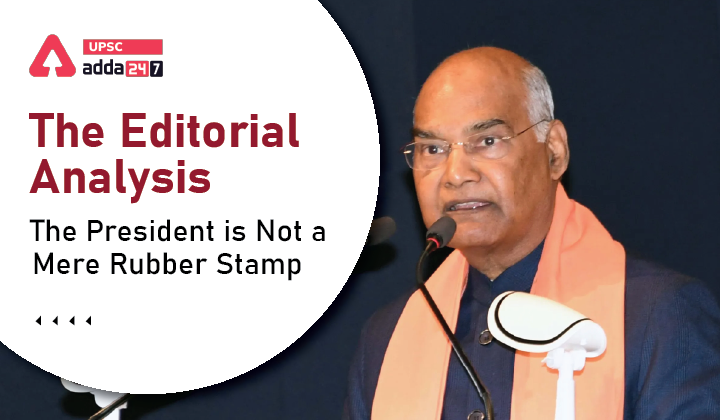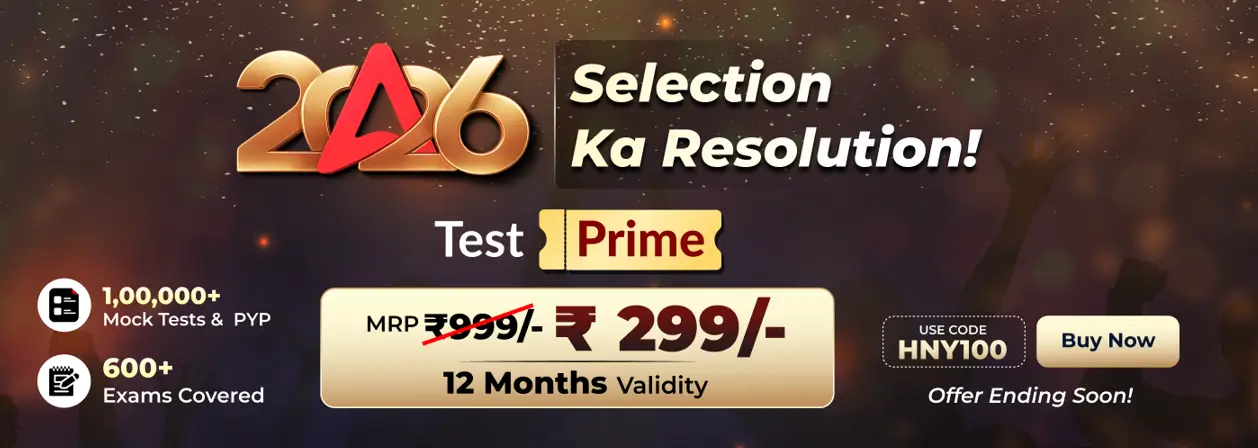Table of Contents
President of India: Relevance
- GS 2: Appointment to various Constitutional posts, powers, functions and responsibilities of various Constitutional Bodies.
Presidential election in India: Context
- President election is going to take place in July 18 and consequently, a new president will be sworn in on July 25.
Election of president in India
- President’s election was debated in the constituent assembly, and the main issue was whether India should have a directly elected President or an indirectly elected one.
- While the Assembly opted for an indirectly elected President, some members such as Professor K.T. Shah strongly argued for a directly elected President.
- Under Article 54, the President is elected by an electoral college consisting of only the elected members of both Houses of Parliament and the elected members of the State and Union Territory Assemblies.
Is president just a figure head? Yes because
- According to Article 53 of the Constitution, “the executive power of the Union shall be vested in the President and shall be exercised by him either directly or through officers subordinate to him in accordance with this Constitution.
- This article means that the President exercises these powers only on the aid and the advice of the Council of Ministers.
- This article, along with the way some of our Presidents have acted in the past reinforces that public perception that the president is a mere rubber stamp.
Is president just a figure head? No because
- In computing the value of a vote of an MLA in the Presidential election, the population of the State figures in a significant way. It means that the population of the country is a crucial factor in the election of the President. It makes people’s presence visible in the election.
- This gives the President a greater moral authority. So, the Indian President is not and cannot be a mere rubber stamp.
- Moreover, even though the president does not directly exercise the executive authority of the Union, but he can disagree with the decision of the Council of Ministers, caution them, counsel them, and so on.
- The President can also ask the Cabinet to reconsider its decisions. It is another matter that if the Cabinet, after such reconsideration, sends the same proposal back without any change, the President will have to sign it. However, merely sending the decision to reconsider can have a huge moral effect in the Parliament.
- The Constitution of India wants the President to be vigilant and responsive, and gives the freedom to him or her to take a broader view of things uninfluenced by the narrow political view of the executive.
- Even the oath of the President states that he shall preserve, protect and defend the Constitution; which he cannot do if it would be merely a rubberstamp.
- There were Presidents such as Rajendra Prasad and Sarvepalli Radhakrishnan who openly differed with the government on certain policy issues and could exert tremendous influence on the government.
President in India: Way forward
- It is possible for a President to disagree with the government or intervene on behalf of the citizenry against the tyranny of the executive and persuade it to give up its ways. To make this a reality, India needs Presidents, not presidential office holders.
Read current affairs for UPSC





 TSPSC Group 1 Question Paper 2024, Downl...
TSPSC Group 1 Question Paper 2024, Downl...
 TSPSC Group 1 Answer key 2024 Out, Downl...
TSPSC Group 1 Answer key 2024 Out, Downl...
 UPSC Prelims 2024 Question Paper, Downlo...
UPSC Prelims 2024 Question Paper, Downlo...





